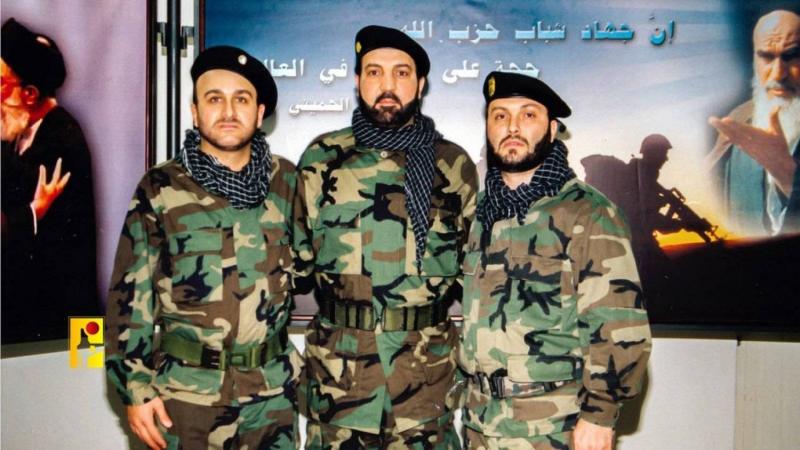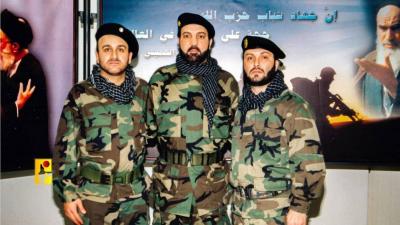The assassination of prominent military leader Fouad Shukr effectively closes the chapter on the "first generation" of leaders who founded Hezbollah in the early 1980s, all of whom have either died in military battles or by assassination. Shukr was a common figure between two groups: the first is the "Group of '82" that emerged from a mosque in the Ouzai area following Israel's invasion of Beirut in 1982, consisting of ten individuals, with Shukr being the last of them. The second group includes military leaders who have alternated in commanding the military wing since the 1980s, with Shukr being the first to undertake that role.
The "Group of '82," known by that name within the party, was formed by ten individuals who convened at the onset of the Israeli invasion of Lebanon in 1982 in a mosque in Ouzai, a southern Beirut neighborhood. These individuals, according to observers familiar with the party, were notably religiously committed and influenced by Khomeini's Islamic revolution in Iran. They decided to resist the Israeli invasion starting from Beirut and the battle of Khaldeh (the southern entrance of the capital) and subsequently moved to fight in the south.
This group consisted of: Hassan Shukr, Assi Zain al-Din, Samir Matout, Mahmoud Youssef, Mohammed Hassouna, Fouad Shukr, Assad Barro, Mohammed Naama Youssef, Jaafar al-Mawla, and Ahmad Shams. Most of them hailed from Baalbek in eastern Lebanon and resided in Ouzai, a poor and marginalized area. Ironically, all of them were killed in the 1980s during the Israeli invasion of southern Lebanon, with only Shukr surviving until his assassination by Israel last Tuesday.
This group from Ouzai united with other groups present in the heart of the southern suburbs, from which emerged two commanders of the military wing of the party: Imad Mughniyeh and Mustafa Badreddine among others. Those familiar with this experience say that Hezbollah "did not operate according to a clear organizational structure, but rather was made up of cells that intersected and coordinated with each other and with other forces fighting Israel in the south." All groups converged in the south during the Israeli invasion and later took shape starting in 1985 under an organized and clear military structure, receiving training from the Iranian Revolutionary Guard. Shukr was among the first to lead the main military body within Hezbollah from 1985 until 1992.
Shukr, the last remaining member of the first group, is also one of the last three responsible for organizing and developing the military body in Hezbollah, training fighters, and equipping them with advanced and precise weaponry. The three were previously depicted in a shared photo, the date of which remains unknown, alongside Secretary-General of Hezbollah Hassan Nasrallah and the former commander of the Quds Force in the Iranian Revolutionary Guard, General Qassem Soleimani, who was assassinated by U.S. aircraft in early 2020 in Baghdad. The circulating photo following Soleimani's assassination showed Shukr flanked by Imad Mughniyeh and Mustafa Badreddine with his face obscured, before being identified in the image released by Hezbollah's "military media" after Shukr's assassination.
The three central leaders each met their end through assassinations attributed to Israel. Mughniyeh was killed in a car explosion in Damascus in February 2008, while Badreddine was killed by a missile strike on a military location in the countryside of Damascus in May 2016, with conflicting reports regarding the perpetrator, as the Syrian opposition claimed responsibility, while estimates within Hezbollah indicated that Israel was behind the attack. As for Shukr, he was assassinated by an Israeli raid last Tuesday targeting a residence he occupied in the southern suburb of Haret Hreik, Beirut.
**Suspension of Operations in the South**
Hezbollah has not reported any military operations against Israeli positions for 48 hours, starting from Tuesday evening, as a clear indication of a suspension of military activity attributed to two possibilities; first, a vacancy in the central military leadership of the party following the assassination of its commander Fouad Shukr, according to experts, and second, Hezbollah's preparations to respond to the assassination that occurred deep within the southern suburbs of Beirut, which had previously been immune to Israeli targeting.
The southern front has not experienced a halt in fighting from southern Lebanon since October 8, except during a ceasefire announced in the Gaza Strip in November, for two days during Eid al-Fitr, and two additional days during Eid al-Adha—both unannounced ceasefires that allowed residents of southern Lebanon to visit their border villages for three hours each morning of each holiday.
From Tuesday evening until Thursday afternoon, Hezbollah did not announce any military operation, despite the Israeli army carrying out an air raid targeting the town of Kfar Kila on Thursday, while Lebanese media reported extensive Israeli drone surveillance in the south and the flight of Israeli warplanes over the Beqaa Valley (eastern Lebanon). Alongside the suspension of military activity, there have been no prominent statements from Hezbollah's leaders since Shukr's assassination, with the matter left to the secretary-general of the party, Hassan Nasrallah.
Observers familiar with Hezbollah's operations note that the suspension of statements pending Nasrallah's announcement also applies to the current military front in southern Lebanon, considering that the party "makes its decisions after consultations and reserves announcements in similar events for its Secretary-General." They recall that the party "dealt with the three assassinations on the same basis," referring to how it handled the assassinations of Mughniyeh, Badreddine, and Shukr. They also point out that the party "leaves the statements to Nasrallah, who announces them after the results of internal discussions in the Shura Council," and that such positions "determine the level of escalation and response, or a transition to a new phase of military operations."
There is a widening consideration of a vacancy within the party at this stage, leading to a freeze in military actions, though information about this remains conflicting. While some estimates suggest that military operations may freeze following a significant leader's departure, awaiting the appointment of a successor, others involved in monitoring the party do not firmly endorse this theory, recalling that the party did not suspend its military activities in Syria after the assassination of Mustafa Badreddine in 2016, as its units continued to operate without interruption. Sources familiar with the party's operational dynamics indicate that "appointing replacements does not take long, especially during wartime," and that there are individuals capable of assuming responsibilities in case of delays in appointment, such as the deputy leader and key personalities in the "Jihadi Council."




